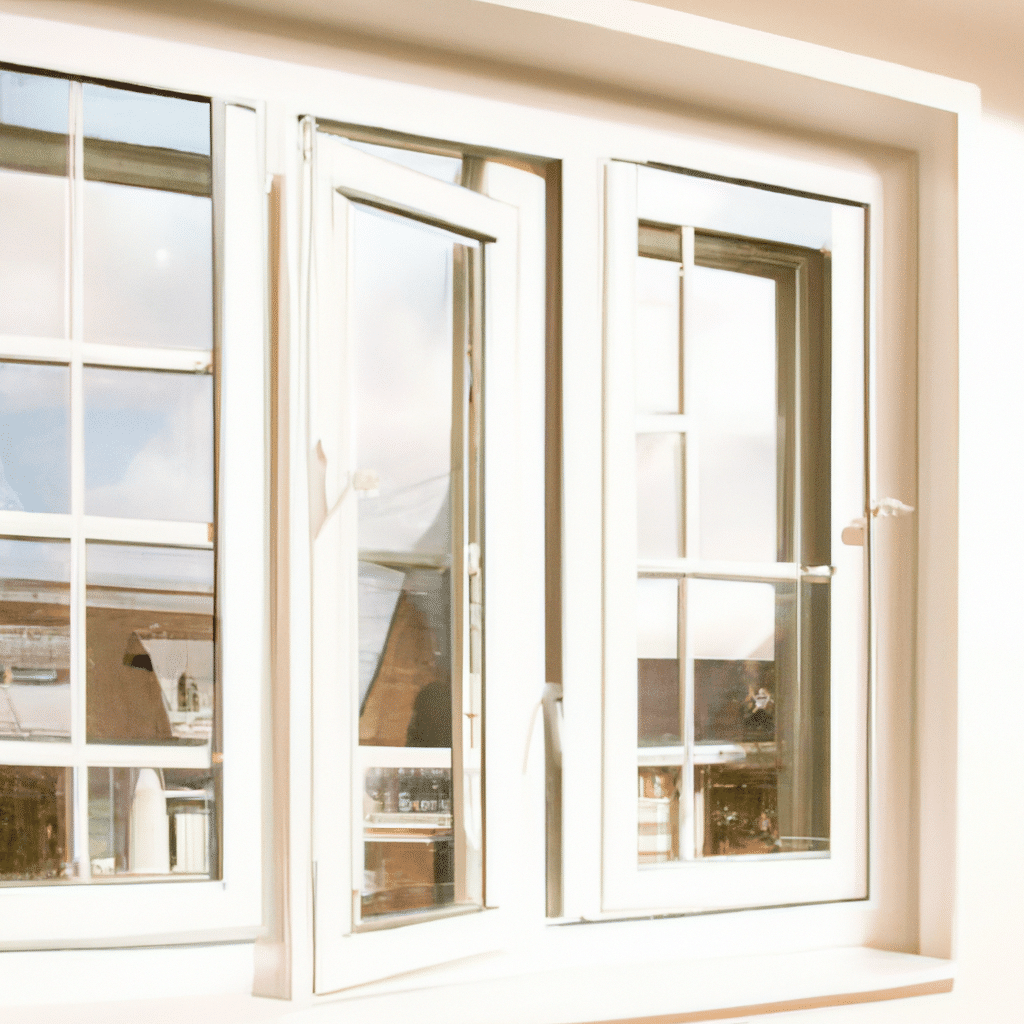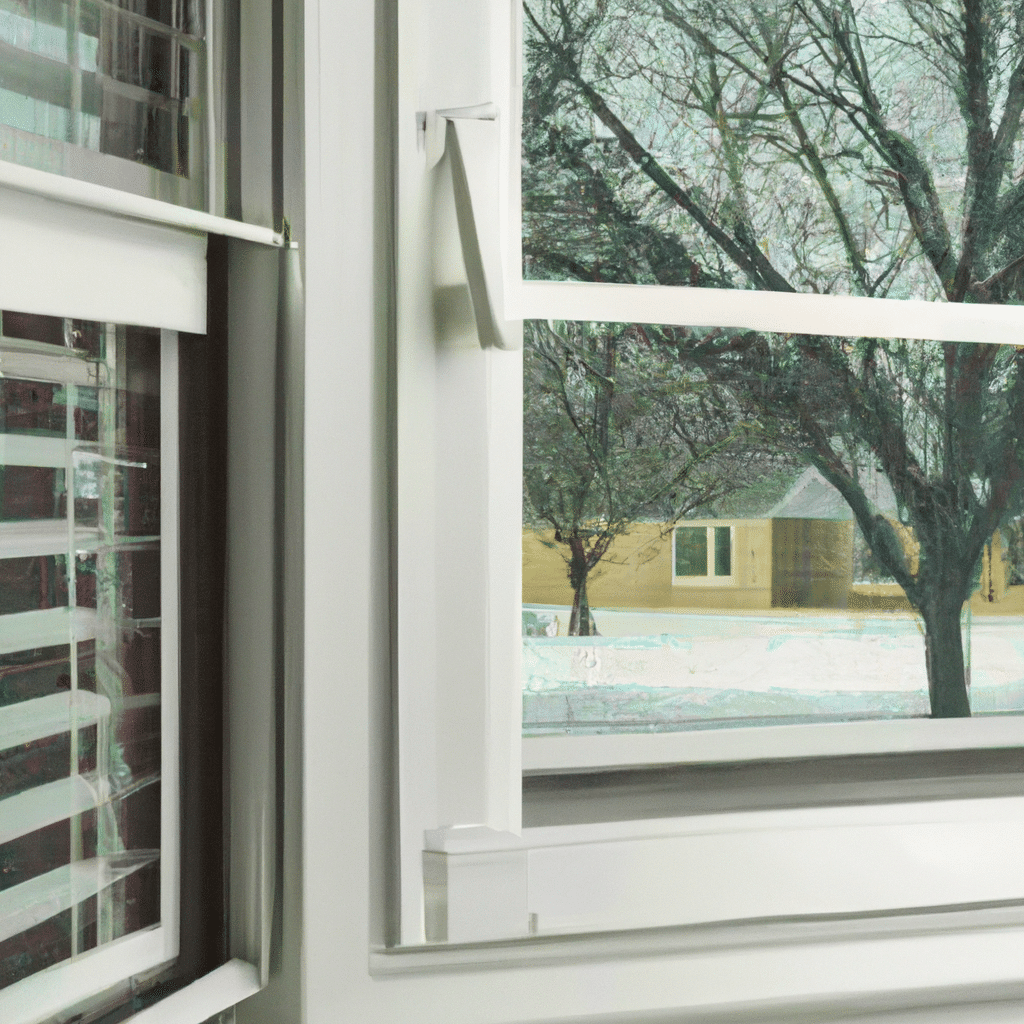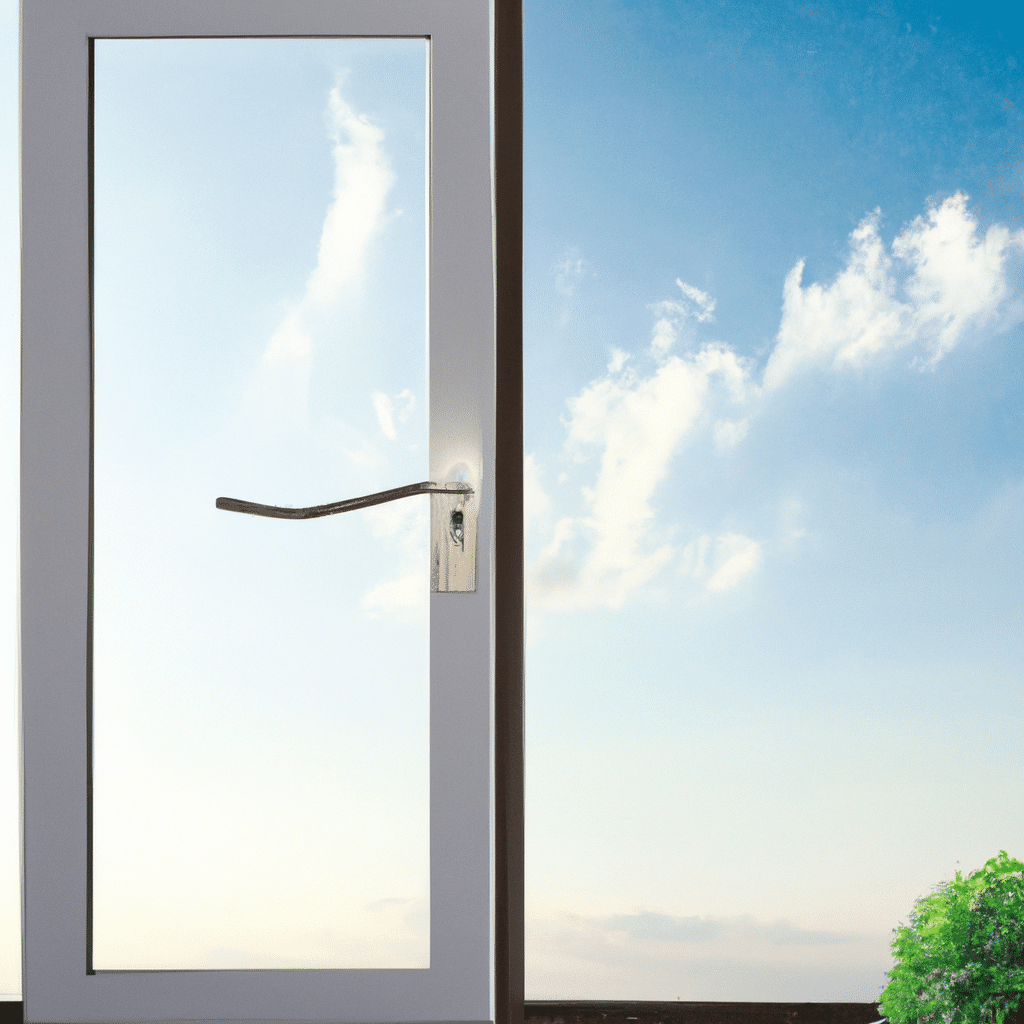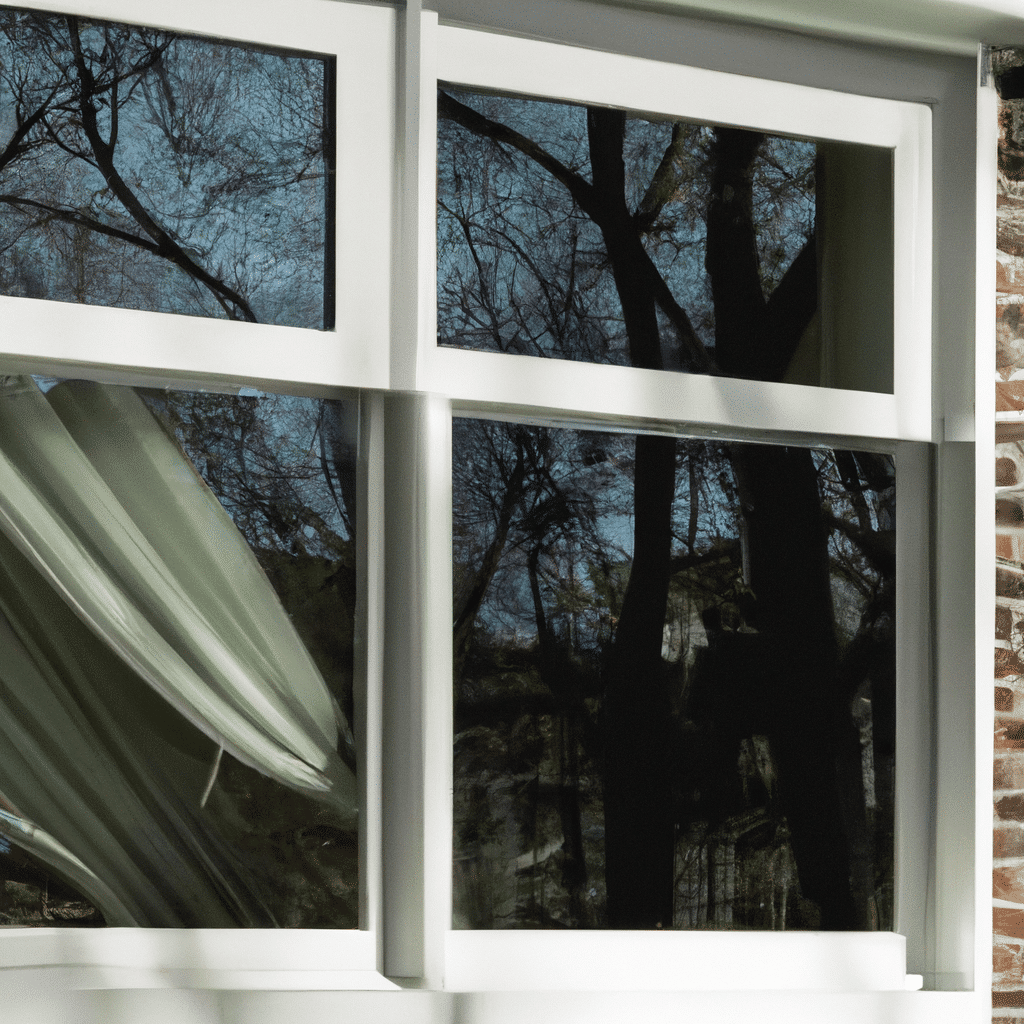So you’re in the market for some impact windows, huh? You’ve heard about their ability to withstand powerful storms and provide added security, and now you want to make sure you choose the right ones for your home. Well, you’ve come to the right place! In this article, we’ll explore all the factors you should consider when choosing impact windows, from their design and materials to energy efficiency and installation. By the time you’re done reading, you’ll be equipped with everything you need to make an informed decision and protect your home in style. Let’s get started!

Determining Your Needs
Assessing your location and climate
Before choosing impact windows for your home, it’s crucial to consider your location and climate. If you live in an area prone to hurricanes, strong winds, or heavy storms, impact windows can provide an added layer of protection for your home. Assess the historical weather patterns in your area and determine the level of risk you might face.
Understanding your goals and priorities
Next, think about your goals and priorities when it comes to impact windows. Are you mainly concerned about safety and security, or are energy efficiency and noise reduction also important to you? Understanding your priorities will help you make informed decisions throughout the process.
Considering the architectural style of your home
It’s essential to consider the architectural style of your home when choosing impact windows. You want the windows to complement the overall aesthetics of your house rather than making them look out of place. Explore different design options that go well with your home’s architectural style.
Determining your budget
Impact windows come in various price ranges, so it’s important to determine your budget before starting the selection process. Assess your financial situation and find a balance between quality and cost. Remember that impact windows are an investment in the long-term safety and value of your home.
Understanding Impact Windows
What are impact windows?
Impact windows, also known as hurricane windows or storm windows, are specially designed to withstand high winds and impact from flying debris during severe weather conditions. Unlike regular windows, impact windows are constructed with laminated glass and robust frame materials that provide greater protection against wind and water infiltration.
How do impact windows work?
Impact windows work by using a combination of laminated glass and sturdy frame materials to resist the force of high winds and debris impact. The laminated glass consists of multiple layers of glass with a special interlayer that holds the glass together even if it shatters, preventing it from breaking apart. This layered construction absorbs the impact and prevents penetration into your home.
Types of impact windows
There are various types of impact windows available, including single-hung, double-hung, casement, sliding, and fixed windows. Each type has its own advantages and considerations, so it’s essential to choose the one that best suits your needs, preferences, and the architecture of your home.
Benefits of impact windows
Impact windows offer several benefits beyond just protection from severe weather. They provide enhanced security, noise reduction, and energy efficiency. Impact windows can also help filter harmful UV rays, protecting your furniture, floors, and other belongings from fading over time.
Researching Different Brands and Manufacturers
Reading customer reviews
When researching impact windows, reading customer reviews is an important step. Look for feedback from homeowners who have already installed impact windows from different brands and manufacturers. Pay attention to their experiences with installation, product quality, customer service, and overall satisfaction.
Checking product certifications
Certifications and testing standards can provide reassurance about the quality and performance of impact windows. Look for certifications such as the ASTM International standard, Miami-Dade County product approval, or National Fenestration Rating Council (NFRC) ratings. These certifications demonstrate that the windows have met specific requirements and undergone rigorous testing.
Comparing warranties
Warranties can vary among different impact window manufacturers. Compare the length and coverage of warranties offered by various brands. A longer warranty can provide greater peace of mind that your windows are built to last. Pay attention to what aspects of the window are covered, as well as any exclusions or limitations.
Considering the reputation and experience of the manufacturer
The reputation and experience of the manufacturer play a significant role in the quality and reliability of their impact windows. Look for established manufacturers with a history of producing high-quality products and providing excellent customer service. A reputable manufacturer is more likely to stand behind their products and offer reliable support.
Considering Performance and Energy Efficiency
Understanding performance ratings
Performance ratings such as the Air Leakage (AL), Water Resistance (WR), and Design Pressure (DP) are important indicators of the quality and effectiveness of impact windows. The higher the value of these ratings, the better the windows can resist air and water infiltration and withstand higher wind pressures.
Evaluating noise reduction capabilities
If reducing outside noise is a priority for you, consider impact windows that offer noise reduction capabilities. Look for sound transmission class (STC) ratings, which measure the effectiveness of windows in reducing sound transmission. A higher STC rating indicates better noise reduction.
Assessing energy efficiency
Energy-efficient impact windows help keep your home comfortable and can lead to savings on heating and cooling costs. Look for windows with a low U-factor, as this indicates better insulation properties. Additionally, consider impact windows that are ENERGY STAR certified, as they meet specific energy efficiency requirements set by the Environmental Protection Agency (EPA).
Considering UV protection
Impact windows with built-in UV protection can help prevent fading and damage to your furniture, flooring, and other belongings caused by the sun’s harmful ultraviolet (UV) rays. Look for windows with low-emissivity (Low-E) coatings or tinted glass that can significantly reduce the amount of UV radiation entering your home.

Choosing the Right Glass
Single-pane vs. double-pane vs. triple-pane glass
When it comes to impact windows, you can choose between single-pane, double-pane, or triple-pane glass options. Single-pane glass is the most basic option but provides limited insulation and sound reduction. Double-pane and triple-pane windows offer improved energy efficiency and noise reduction, but they may come at a higher cost.
Laminated glass vs. tempered glass
Laminated glass is the standard for impact windows due to its superior strength and safety features. It consists of two or more layers of glass bonded together with an interlayer. Tempered glass, on the other hand, is heat-treated to increase its strength and safety but does not provide the same level of impact resistance as laminated glass.
Low-E coatings and tints
Low-E coatings and tints can enhance the performance of impact windows. Low-E coatings reflect infrared heat while allowing visible light to pass through, improving energy efficiency. Tinted glass can reduce glare, block heat, and add privacy. Consider your climate, sun exposure, and desired level of privacy when choosing glass with Low-E coatings or tints.
Exploring Frame Materials
Different types of frame materials
There are several frame materials commonly used for impact windows, including vinyl, aluminum, wood, and fiberglass. Each material has its own advantages and considerations. Vinyl frames are low-maintenance and energy-efficient, aluminum frames are durable and lightweight, wood frames offer a classic look but require more maintenance, and fiberglass frames combine durability and energy efficiency.
Pros and cons of each material
Consider the pros and cons of each frame material to determine which one is best suited for your needs. Vinyl frames are cost-effective but may be less durable than aluminum or fiberglass. Aluminum frames are strong but may not provide the best thermal insulation. Wood frames offer beauty but require regular maintenance. Fiberglass frames are durable and energy-efficient but can be more expensive.
Considering durability and maintenance requirements
Durability and maintenance requirements are important factors to consider when choosing frame materials for impact windows. Vinyl, aluminum, and fiberglass frames generally require minimal maintenance and have good resistance to corrosion and wear. Wood frames, while aesthetically pleasing, require regular maintenance to protect against rot, moisture, and insects.

Understanding Installation Options
Full-frame replacement vs. retrofit installation
When installing impact windows, you have two main options: full-frame replacement or retrofit installation. Full-frame replacement involves removing the entire existing window and its frame, while retrofit installation involves installing the impact window within the existing frame. Full-frame replacement offers the opportunity for improved energy efficiency and aesthetics but may be more costly.
Hiring a professional vs. DIY installation
Deciding between hiring a professional or opting for a do-it-yourself (DIY) installation depends on your expertise, time availability, and comfort level with the installation process. Installing impact windows correctly is crucial for their performance and effectiveness, so if you’re not confident in your abilities, it’s best to hire a professional installer who has the necessary skills and experience.
Considering Additional Features and Options
Impact-resistant screens
Consider adding impact-resistant screens to your windows for added protection. These screens are designed to withstand high winds, debris impact, and even attempts at forced entry. Impact-resistant screens provide an extra layer of security while allowing airflow and natural light to enter your home.
Noise-reducing features
If noise reduction is a priority, look for impact windows with enhanced noise-reducing features. Some manufacturers offer windows with specialized soundproofing technology or additional glazing layers that can significantly reduce outside noise, creating a more peaceful and comfortable living environment.
Customization options
Many impact window manufacturers offer customization options, allowing you to choose different frame colors, finishes, and hardware styles to match your home’s aesthetics. Explore the various customization possibilities offered by different brands to find the perfect combination that suits your personal preferences and complements your home’s style.
Hurricane shutters and additional protection
In addition to impact windows, you may consider installing hurricane shutters or opting for additional protection features. Hurricane shutters provide an extra layer of defense against severe weather and can be an effective way to protect your windows and increase the overall safety of your home. Explore different options such as accordion shutters, roll-down shutters, or impact-resistant panels.

Getting Quotes and Comparing Prices
Requesting quotes from multiple vendors
To ensure you get the best value for your investment, it’s important to request quotes from multiple impact window vendors. Provide detailed information about your requirements, including window sizes, quantity, desired features, and any additional customization. This will help vendors provide accurate quotes tailored to your specific needs.
Comparing prices and cost breakdowns
When comparing quotes, don’t just focus on the overall price. Scrutinize the cost breakdowns provided by each vendor and understand what features and services are included. Look for transparent pricing, including any additional costs for installation, warranties, or customization. Compare the overall value offered by each vendor, taking into consideration the quality of their products and reputation.
Beware of overly cheap or expensive options
Be cautious of overly cheap or expensive impact window options. If a quote seems too good to be true, it may indicate subpar product quality or installation standards. On the other hand, excessively high prices may not always guarantee the best quality. Look for vendors that offer a balance of competitive pricing and high-quality products and services.
Seeking Professional Advice
Consulting with a window specialist
If you’re unsure about any aspect of choosing impact windows, consider consulting with a window specialist. A professional who specializes in impact windows can provide valuable insight and guidance based on their expertise and experience. They can help you navigate through the various options, answer your questions, and provide recommendations tailored to your needs.
Getting recommendations from friends or neighbors
Reach out to friends, family, or neighbors who have already installed impact windows in their homes. Ask about their experience, including the product quality, installation process, and customer service. Their firsthand recommendations can help you make a more informed decision and potentially connect you with reputable vendors.
Considering local building codes and regulations
Before making a final decision, it’s important to consider local building codes and regulations related to impact windows. Ensure that the windows you choose comply with the specific requirements in your area. Some regions may have specific wind load or impact resistance standards that impact windows must meet. Familiarize yourself with these regulations to ensure your chosen product is code-compliant.
